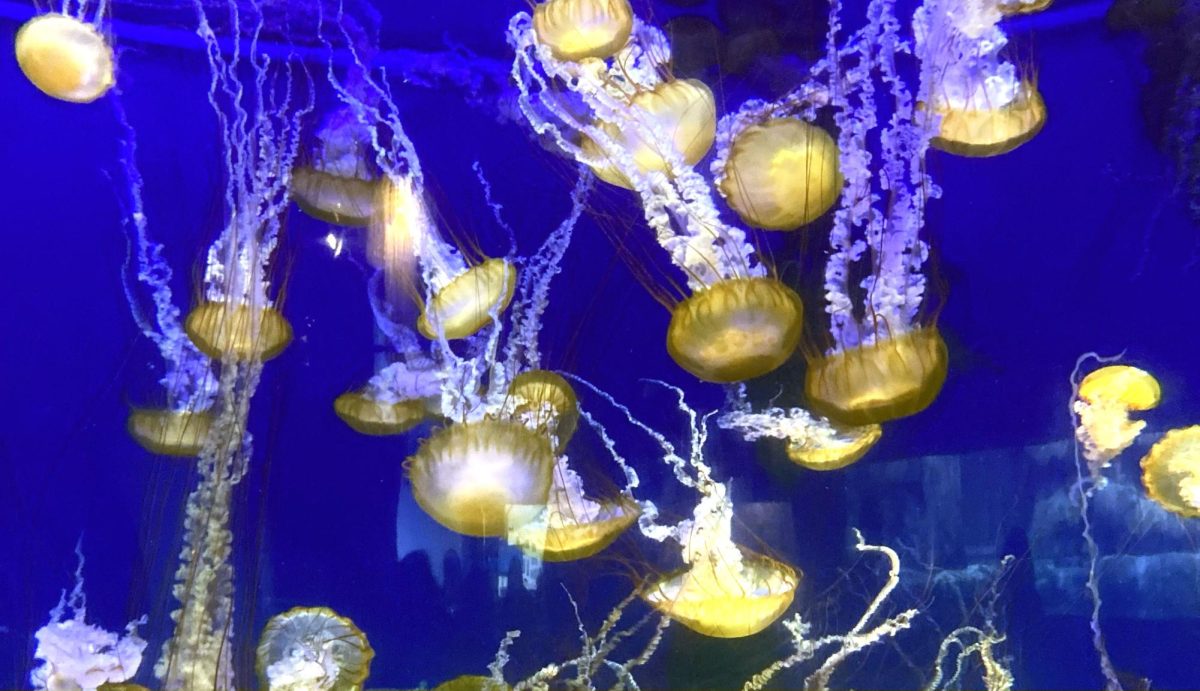Students taking the newly implemented Marine Zoology course took a field trip to the Aquarium of the Pacific on Oct. 25, 2023. Unlike most field trips, students were not confined to a set schedule and were free to explore the aquarium’s various exhibits with their preassigned groups.
Senior Nao Song, an educational volunteer at the aquarium and student taking the course, re experienced the exhibits as a visitor.
“I haven’t been in Lorikeet Forest as a visitor in a couple of years, so it was interesting seeing the lorikeets and how bold they are again,” Song said. “I know this place from front to back, but I do always like learning more about what’s going on in the aquarium and how other people tend to interpret everything that’s inside.”
Many enjoyed the newly established Pacific Visions and Lorikeet Forest exhibits. Students were attracted to the unique animals they featured, such as various types of jellyfish and flamboyant cuttlefish, according to Song.
“It reminded me how many people haven’t seen or touched a living jellyfish before,” Song said. “Seeing them alive is a completely different experience because you get to see all of those little components that we talked about, anatomy-wise, in our lessons, compared to a dead specimen that’s ready for a dissection-based examination.”
The field trip not only provided a fun opportunity for learners to explore their interests but also helped foster a better understanding of the content being covered in Marine Zoology. This was especially true for students who are not regular visitors of the aquarium, like junior Irene Jung.
“We’ve been learning a lot about the marine part of zoology, and all different types of species populations,” Jung said. “Honestly, it was more for fun, but we reviewed a lot about what we learned in class in the aquarium.”
The Aquarium of the Pacific houses many marine habitats that model ones that are relevant to the Marine Zoology course, including kelp forests and the Northern Pacific. This provided learners with a hands-on experience that aided them in grasping how different organisms interacted with their habitats and other species.
“It’s always nice to experience learning about content in different ways, and I can only teach it and explain it in the way that I know best,” said Marine Zoology teacher Jeralyn Newton. “The more that you can get introduced to the content in different ways, the more you’ll remember it.”
Newton is enthusiastic about providing her students with unique learning opportunities and listening to their feedback to facilitate engagement. Since the course focuses on a very specific area of science, it appeals to those wishing to pursue a similar career. As they wish to major in marine science, many students like Song and Jung felt that the course was especially useful to them.
“I have students who want to become veterinarians and get into the medical field in relationship with animals, so it’s better and much more valuable for them to take this class than something like AP Physics,” Newton said. “They’re going to learn so much more that’s more applicable to their future and won’t have the mental health issues that come with being in a high-stress environment in a topic that they don’t have interest in.”




